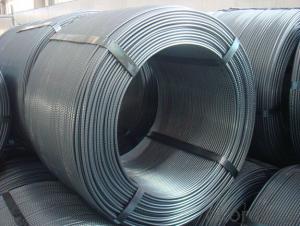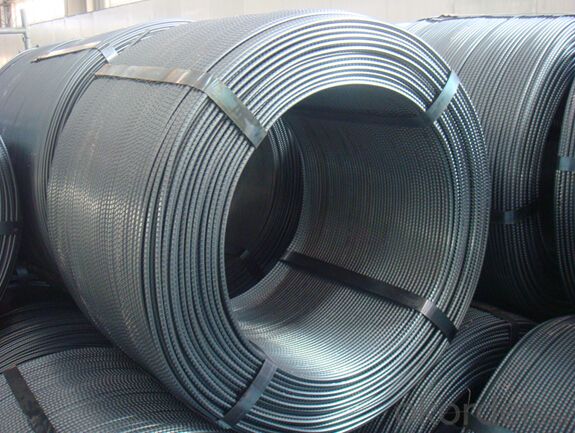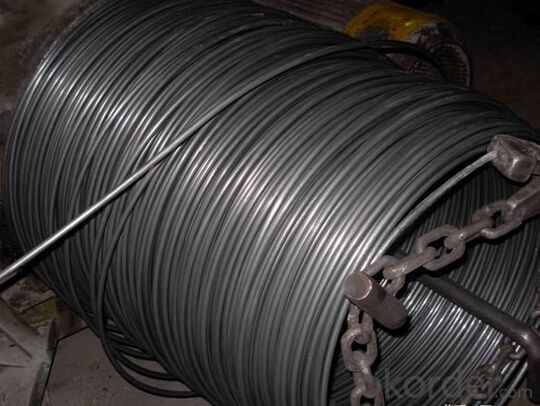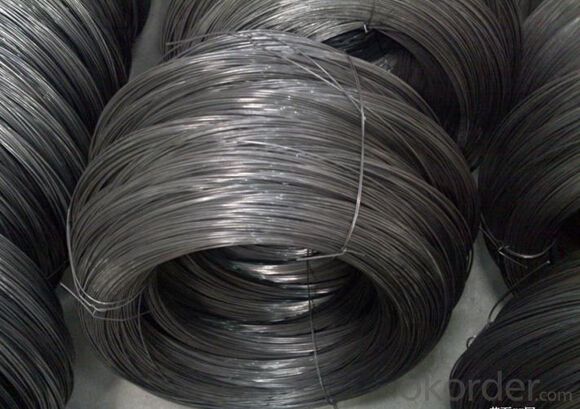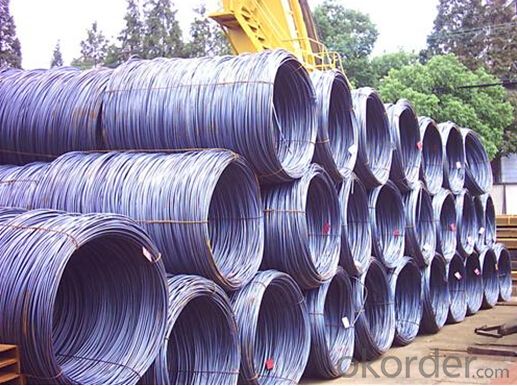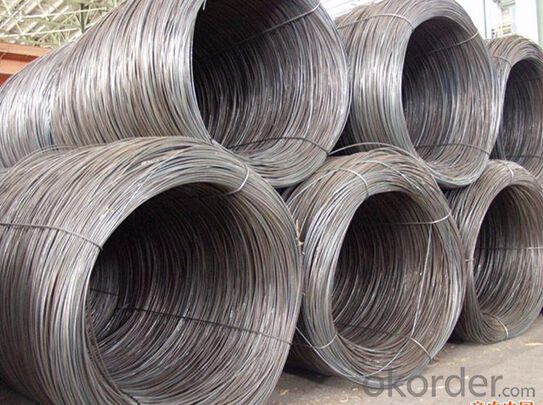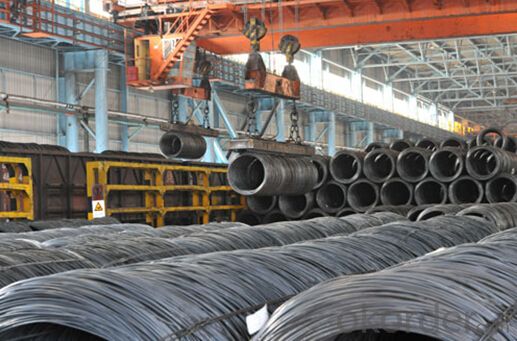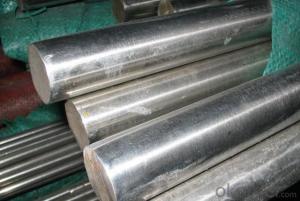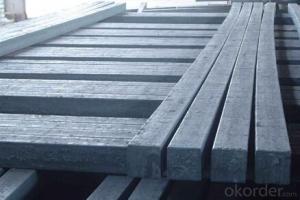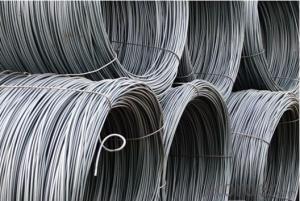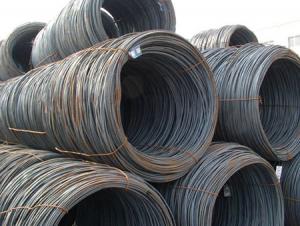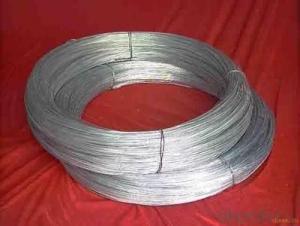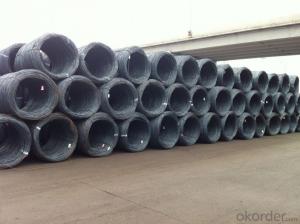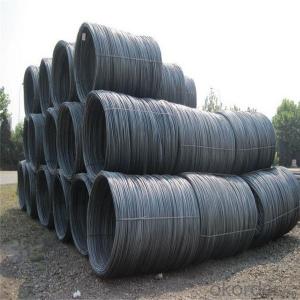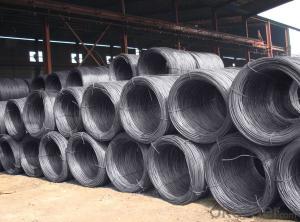Steel Wire Rod SAE1008 Suppliers for Making Nails
- Loading Port:
- Tianjin
- Payment Terms:
- TT OR LC
- Min Order Qty:
- 3 m.t.
- Supply Capability:
- 10000 m.t./month
OKorder Service Pledge
Quality Product, Order Online Tracking, Timely Delivery
OKorder Financial Service
Credit Rating, Credit Services, Credit Purchasing
You Might Also Like
Specification
Type:
Carbon Steel,Spring Steel,Bearing Steel,Gear Steel,Deformed Steel,Stainless Steel,Alloy Steel
Shape:
Steel Coil,Steel Sheet,Steel Wire Rod,Steel Flat Bar,Steel Square Bar,Steel Angle,Steel Round Bar,Steel Billets
Technique:
Hot Rolled,Cold Rolled,Cold Drawn,ERW,Forged,Saw,Extruded,EFW,Spring
Surface Treatment:
Galvanized,Coated,Copper Coated,Color Coated,Oiled,Dry,Chromed Passivation,Polished,Bright,Black,PVDF Coated
Certification:
ISO,SGS,BV,IBR,RoHS,CE,API,BSI,UL
Thickness:
5.5-16mm
Width:
5.5-16mm
Length:
In coils
Outer Diameter:
5.5-16mm
Net Weight:
2m.t.
Packaging:
Seaworthy packaging
Steel Wire Rod SAE1008 Suppliers for Making Nails
Detailed Information of Steel Wire Rod SAE1008 Suppliers for Making Nails
| Name | Hot Rolled High Carbon Wire Rod |
| Shape | Round Bar/Square Bar/Flat Bar/Plate/Wire |
| Standard | GB/ASTM/SAE/AISI/DIN/JIS/EN/BS |
| Surface Treatment: | Black/Peeling/Polished/Machined |
| Delivery Condition: | Hot Rolled or Forged/Peeled or Black Surface |
| Test | SGS/UT 100% Elements Testing |
| Certificate: | ISO/Mill Certificate |
| Service: | 24 hours online service / |
| more than 20 years trading and manufacture | |
| Quality Assurance: | the third party inspection, such as SGS, BV, TUV…etc. is acceptable |
| Packaging Details: | Seaworthy Packaging or as per customer's packing instruction |
Chemical Composition of Steel Wire Rod SAE1008 Suppliers for Making Nails
| Grade | Chemical Composition(%) | |||||
| C | Mn | Si | S | P | B | |
| SAE1008 | 0.1max. | 0.3~0.50 | 0.15max | 0.050max | ≤0.040 | >0.0008 |
| Mechanical properties | ||||||
| Yield strength(N/mm2) | Tensile strength(N/mm2) | Elongation(%) | ||||
| 250-280 | 350-380 | ≥32 | ||||
Company Introduction the Steel Wire Rod SAE1008 Suppliers for Making Nails
CNBM International Corporation is the most import and export platform of CNBM group(China National Building Material Group Corporation) ,which is a state-owned enterprise, ranked in 270th of Fortune Global 500 in 2015.
With its advantages, CNBM International are mainly concentrate on Cement, Glass, Iron and Steel, Ceramics industries and devotes herself for supplying high quality series of refractories as well as technical consultancies and logistics solution.
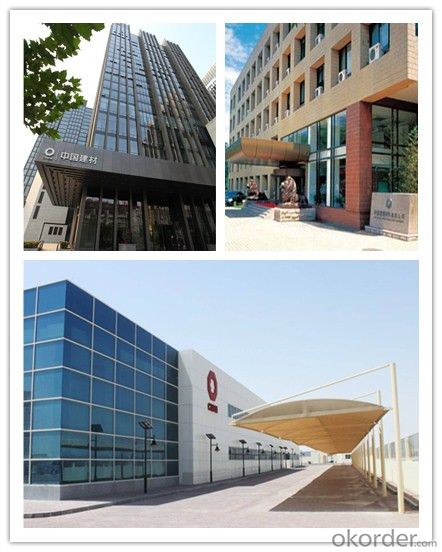
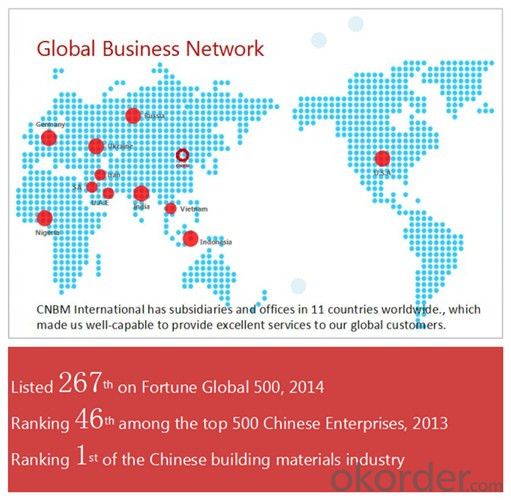
| After-sale service | CNBM provides the services and support you need for every step of our cooperation. We’re the business partners you can trust; you can relax and get on with doing business. |
| For any problem, please kindly contact us at any your convenient time, we’ll reply you in our first priority within 24 hours | |
| Advantages | Industry experience over 20 years. |
| Shipment of goods -More than 70 countries worldwide. | |
| The most convenient transport and prompt delivery. | |
| Competitive price with best service. | |
| High technical production line with top quality products. | |
| High reputation based on best quality products. |
Packaging & Delivery the Steel Wire Rod SAE1008 Suppliers for Making Nails
| Packaging Detail | Sea worthy packing /as per customer's packing instruction |
| Delivery Detail | 15 ~ 40 days after receiving the deposit |
Products Show
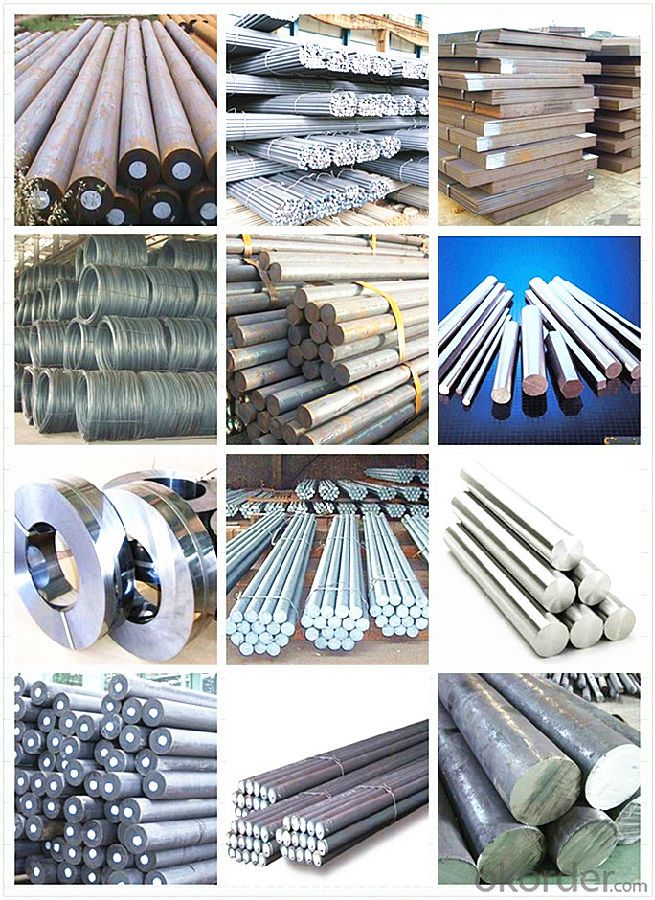
FAQ:
| Are you a trader or manufacturer? | Manufacturer |
| What’s the MOQ? | 3 metric ton |
| What’s your delivery time? | 15-35 days after downpayment received |
| Do you Accept OEM service? | Yes |
| what’s your delivery terms? | FOB/CFR/CIF |
| What's the Payment Terms? | 30% as deposit,70% before shipment by T/T |
| Western Union acceptable for small amount. | |
| L/C acceptable for large amount. | |
| Scrow ,Paybal,Alipay are also ok | |
| Why choose us? | Chose happens because of quality, then price, We can give you both. |
| Additionally, we can also offer professional products inquiry, products knowledge train (for agents), smooth goods delivery, excellent customer solution proposals. | |
| What's your available port of Shipment? | Main Port, China |
| What’s your featured services? | Our service formula: good quality+ good price+ good service=customer's trust |
| Where are your Market? | Covering more than 160 countries in the world |
- Q: How is special steel used in the manufacturing of cutting tools?
- Special steel is used in the manufacturing of cutting tools due to its exceptional properties such as high hardness, toughness, and wear resistance. These qualities allow special steel to withstand the intense forces and abrasion involved in cutting operations. Additionally, it can retain its sharpness for longer periods, ensuring efficient and precise cutting.
- Q: How does special steel contribute to the power generation industry?
- Special steel plays a crucial role in the power generation industry by offering high strength, durability, and resistance to extreme temperatures and corrosive environments. It is used in the construction of power plant components such as turbines, generators, boilers, and heat exchangers, ensuring efficient and reliable operation. Additionally, special steel enables the development of advanced technologies such as supercritical and ultra-supercritical power plants, which enhance energy efficiency and reduce emissions, contributing to a more sustainable power generation.
- Q: What are the factors to consider when selecting special steel for a specific application?
- When choosing special steel for a particular use, there are several critical factors to take into account: 1. Mechanical properties play a crucial role in determining the steel's suitability for the application. Strength, hardness, toughness, and ductility are all important considerations. Matching the steel's mechanical properties to the specific requirements of the application is essential to achieve optimal performance and ensure safety. 2. The steel's resistance to corrosion is another key factor to consider. Different environments, such as marine, chemical, or high-temperature conditions, may necessitate the use of corrosion-resistant alloys or coatings. This is vital to ensure the steel's longevity and reliability in service. 3. Temperature resistance is crucial in many applications. The steel must be able to withstand high or low temperatures without compromising its mechanical properties. Factors like thermal expansion, thermal conductivity, and resistance to thermal fatigue should be taken into account to ensure effective performance in the intended environment. 4. If welding or fabricating the steel into complex shapes is necessary, the ease of weldability and fabricability becomes an important consideration. Certain steels may require specialized welding techniques or preheating to prevent cracking or distortion during fabrication. 5. Cost is a significant consideration as well. It is important to find a balance between the desired properties of the steel and the available budget. This ensures cost-effectiveness without compromising performance or safety. 6. The availability of the chosen steel grade in the required form, size, and quantity is another critical factor. It is crucial to ensure that the selected steel can be easily sourced and obtained within the required timeframe. This helps to avoid project delays or cost overruns. 7. Compliance with industry-specific standards, specifications, or regulations is essential. Depending on the industry or application, there may be specific requirements that the steel must meet. Selecting a steel grade that complies with these standards is necessary to ensure compliance and maintain necessary certifications or approvals. By considering these factors, engineers and manufacturers can make well-informed decisions when choosing special steel for specific applications. This ensures optimal performance, durability, and safety.
- Q: What are the applications of special steel in the oil and gas manufacturing process?
- Special steel is widely used in the oil and gas manufacturing process for various applications. It is utilized in the construction of pipelines, offshore platforms, and equipment such as valves, pumps, and compressors. The high strength and corrosion resistance of special steel make it suitable for handling extreme conditions, such as high pressure and temperature environments, as well as corrosive substances like drilling fluids and sour gases. Additionally, special steel is employed in the fabrication of storage tanks and vessels, ensuring durability and preventing leakage or failure. Overall, the applications of special steel in the oil and gas industry contribute to enhanced safety, efficiency, and longevity of the manufacturing process.
- Q: What are the main applications of special steel in the semiconductor industry?
- Special steel finds various applications in the semiconductor industry, primarily in the manufacturing of critical components such as chambers, wafer carriers, and vacuum systems. Due to its high strength, corrosion resistance, and thermal stability, special steel is ideal for creating these parts that require durability and precision in maintaining the controlled environments necessary for semiconductor production. Additionally, special steel is also used in the fabrication of cutting tools and molds for semiconductor device manufacturing, further highlighting its importance in this industry.
- Q: How does spring steel maintain its elasticity?
- Spring steel maintains its elasticity due to its unique composition and heat treatment process. It is made from a high carbon steel alloy, which provides it with exceptional strength and flexibility. Additionally, spring steel undergoes a specific heat treatment called quenching and tempering. During this process, the steel is heated to a high temperature and then rapidly cooled, which creates a hardened structure. This hardened structure allows spring steel to withstand repeated bending and twisting without permanently deforming. Overall, the combination of high carbon content and heat treatment enables spring steel to maintain its elasticity and resilience.
- Q: What are the different types of tool steel?
- There are several types of tool steel, including carbon tool steel, alloy tool steel, high-speed tool steel, and hot work tool steel. Each type has its unique composition and characteristics that make it suitable for specific applications in the manufacturing and tooling industry.
- Q: What are the different methods of preventing stress relaxation in special steel?
- There are several methods of preventing stress relaxation in special steel. One method is through heat treatment, specifically through the process of annealing. Annealing involves heating the steel to a specific temperature and then slowly cooling it down. This process helps to relieve internal stresses within the steel and prevent stress relaxation. Another method is through the use of stress relieving techniques. These techniques involve applying controlled amounts of stress to the steel, typically through cold working or mechanical deformation. By doing so, the steel is able to release any built-up stress and prevent relaxation over time. Additionally, the use of alloying elements can also help prevent stress relaxation in special steel. Certain alloying elements, such as molybdenum and chromium, can improve the steel's resistance to stress relaxation by enhancing its strength and stability. Lastly, proper design and engineering of components can also play a role in preventing stress relaxation. By considering factors such as load distribution, material thickness, and stress concentration points, engineers can minimize the risk of stress relaxation in special steel applications. Overall, a combination of heat treatment, stress relieving techniques, alloying elements, and thoughtful design can be employed to prevent stress relaxation in special steel.
- Q: How does electrical steel contribute to the production of transformers and motors?
- Electrical steel, also known as silicon steel, plays a crucial role in the production of transformers and motors. Its unique magnetic properties, achieved through the addition of silicon, allow for efficient energy transfer and reduction of energy losses. The low core loss and high magnetic permeability of electrical steel enable transformers to convert high voltage electricity into lower voltage levels, and motors to efficiently convert electrical energy into mechanical motion. In essence, electrical steel is the essential material that enables the high efficiency and performance of transformers and motors, making them indispensable components in various electrical applications.
- Q: What are the different production methods for special steel?
- There are several different production methods for special steel, each with its own unique advantages and characteristics. Some of the most common methods include: 1. Electric Arc Furnace (EAF): This method involves melting scrap steel in an electric arc furnace, where an electric current generates intense heat to melt the materials. EAF is popular for its flexibility, as it can produce a wide range of steel grades and alloys. 2. Basic Oxygen Furnace (BOF): In this process, molten iron from a blast furnace is combined with scrap steel and oxygen to remove impurities and adjust the carbon content. BOF is known for its high production capacity and ability to produce large quantities of steel. 3. Vacuum Induction Melting (VIM): VIM is a method used to produce high-quality and high-purity steel. It involves melting the raw materials in a vacuum environment to prevent contamination and achieve precise control over the alloy composition. 4. Continuous Casting: This method involves pouring molten steel into a water-cooled mold, which continuously produces solidified steel slabs, blooms, or billets. Continuous casting is known for its efficiency and ability to produce consistent and defect-free steel products. 5. Powder Metallurgy: This technique involves compacting and sintering metal powders to produce steel with specific properties. Powder metallurgy allows for the production of complex shapes, improved mechanical properties, and the incorporation of alloying elements that are challenging to achieve through traditional methods. 6. Additive Manufacturing (AM): Also known as 3D printing, AM is a relatively new method for producing special steel. It involves layer-by-layer deposition of metal powders, which are then fused together using heat or a laser. AM offers great design freedom, the ability to produce complex geometries, and the potential for customized steel parts. Each production method has its own advantages and limitations, and the choice depends on factors such as the desired steel properties, production volume, cost considerations, and the specific requirements of the end-use application.
Send your message to us
Steel Wire Rod SAE1008 Suppliers for Making Nails
- Loading Port:
- Tianjin
- Payment Terms:
- TT OR LC
- Min Order Qty:
- 3 m.t.
- Supply Capability:
- 10000 m.t./month
OKorder Service Pledge
Quality Product, Order Online Tracking, Timely Delivery
OKorder Financial Service
Credit Rating, Credit Services, Credit Purchasing
Similar products
Hot products
Hot Searches
Related keywords
